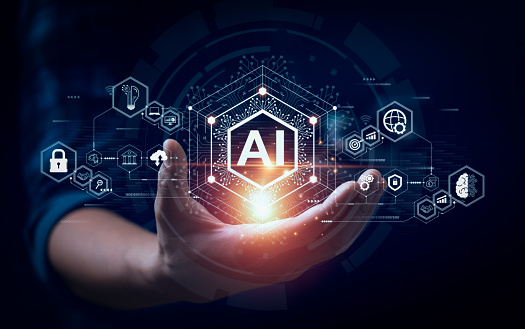Artificial Intelligence, or AI, is the field of computer science that focuses on creating intelligent machines that can perform tasks typically requiring human intelligence. AI has been around for decades, but recent advancements in machine learning and big data have brought it to the forefront of technological development. In this blog, we will explore the current state of AI, its potential future, and the implications of this rapidly evolving technology.
What is Artificial Intelligence?

Artificial Intelligence is the development of computer systems that can perform tasks that would normally require human intelligence, such as visual perception, speech recognition, decision-making, and language translation. AI technologies have become ubiquitous in our daily lives, from voice assistants like Siri and Alexa to recommendation algorithms on social media platforms. AI is also behind many industrial and scientific advancements, from self-driving cars to precision medicine.
Types of AI
There are two main types of AI: Narrow or Weak AI, and General or Strong AI. Narrow AI systems are designed to perform a specific task, such as image recognition or natural language processing. They are limited to the task they were designed for and cannot perform tasks outside of their domain. On the other hand, General AI systems can perform any intellectual task that a human can, and potentially more. General AI is still a theoretical concept and is not yet available in practice.
Current State of AI
AI has made significant progress in recent years, particularly in the field of machine learning. Machine learning is a subset of AI that focuses on developing algorithms that can learn from and make predictions on data. The availability of vast amounts of data, as well as advancements in hardware and software, have led to breakthroughs in image and speech recognition, natural language processing, and autonomous systems. One of the most promising applications of AI is in healthcare. AI technologies can help identify and diagnose diseases, develop personalized treatment plans, and even predict outbreaks. AI can also be used in drug discovery and development, speeding up the process and reducing costs.
Future of AI
The future of AI is both exciting and uncertain. The potential applications of AI are vast, from improving healthcare to enhancing national security. However, as AI systems become more powerful and pervasive, there are concerns about their impact on society. One of the biggest concerns is the potential for AI to replace jobs, particularly in industries that rely on repetitive tasks or manual labor. Another concern is the potential for AI to perpetuate and amplify biases and discrimination. AI algorithms are only as good as the data they are trained on, and if that data contains biases or discrimination, the algorithms will perpetuate those biases. This could have serious implications in areas such as hiring, lending, and criminal justice.
Conclusion
AI is a rapidly evolving technology with the potential to transform our world in ways we cannot yet imagine. As we continue to develop AI, it is important to consider the ethical and societal implications of its use. AI has the potential to revolutionize healthcare, finance, and national security, but it must be developed responsibly and with consideration for its impact on society.